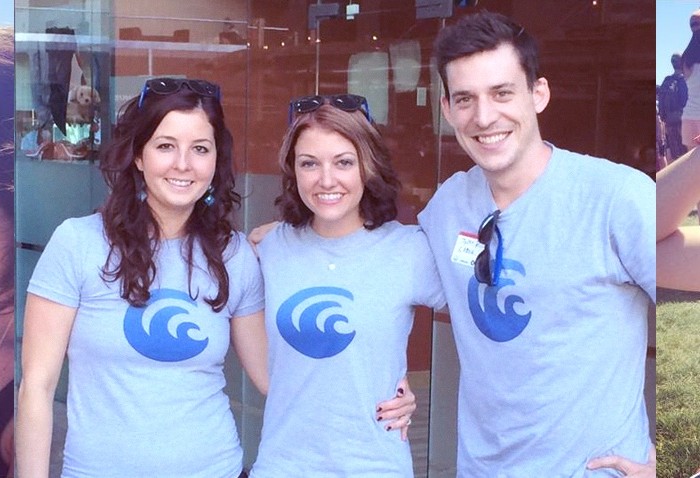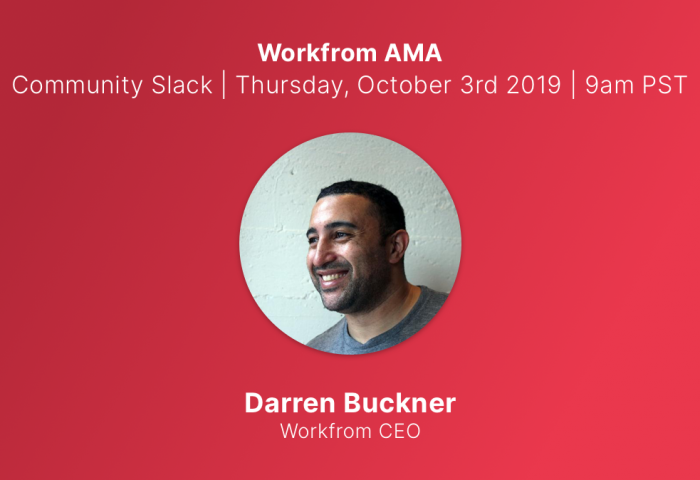33 Sticks is a boutique analytics consultancy that provides data collection architecture, consumer behavior analysis, and site optimization strategies to Fortune 500 brands and innovative startups alike. Their client list includes Hallmark, Harvard Business Review, and Dollar Shave Club. Even more impressive is the fact they can deliver these high-end analytics services without stepping foot in their clients’ offices.
CEO Jason Thompson took the time to answer my questions about the six-member remote team behind the company’s success and to share his thoughts about best practices for distributed organizations.
How was the company founded?
I founded 33 Sticks with my partner, Hila Dahan, after spending many years in the analytics industry mostly working for different consulting firms as well as building an analytics practice from scratch working on the client side for Spark Networks. Before 33 Sticks, I used to work for three different consulting agencies, and during my tenure at each, I kept a notebook of all the things I would and wouldn’t do if I ever decided to start my own business. 33 Sticks is my platform to test all of the ideas that I always thought would create a fantastic company.
33 Sticks was founded a little over four years ago when we grew tired of the way analytics consulting was being done. For too long the focus was on billing hours rather than creating value for clients. So 33 Sticks was founded to provide a better alternative to the billable hours model, and while we were at it, we decided to challenge the notion that you have to have everyone in the same location to be successful.
What’s the story behind the company’s name?
When Hila and I first started working together back in 2007, our offices were 650 miles of desert apart. As a fun way to communicate, we sent popsicle sticks back and forth between the offices. The sticks would have random messages written on them like:
- “soup with jalapeños.”
- “the rose that grew from concrete.”
- “grilled lamb with lemon and onions.”
- “refraining from name-dropping at all cost.”
We stored our sticks in jars on our desks, and when we needed something to brighten our day, we would reach into the jar and read one of the messages.
When we decided to form 33 Sticks, we wanted everything about the business to be uniquely ours, and we wanted our name to reflect the personal way we approach business.
“Sticks” was the perfect word to describe our work. It’s personal. It possesses meaning. It’s uniquely us. And with that one word, we were able to describe the unique and personalized approach we take with each of our clients—something a thousand business buzz words could never have accomplished.
I’ll leave the symbolic meaning of the number 33 a bit of a mystery, something for creative minds to figure out.
What % of your company regularly works remotely?
33 Sticks is a 100% remote company. Not only are our employees remote but our leadership team is as well. In addition to being a remote-friendly company, we are very passionate about supporting the digital nomad movement. One of our employees is a digital nomad who is not only helping shape the way our company works remotely but is also sharing his experiences so that others can learn from his journey.
What’s the importance of location independence for 33 Sticks?
Being able to work anytime, from anywhere, is at the foundation of 33 Sticks. The company was created to challenge the way consulting has always been done, but more importantly to provide freedom and wealth to our employees. The ability to be location independent is a primary way we can offer our team a high quality of life that many of our competitors cannot match. Location independence is equally as valuable to our clients as we can hire the top minds in the industry, regardless of where they choose to live and work, to solve their complex problems.
Did you start with the intention of having a distributed team? If not, when did you decide to support people working remotely?
When we founded 33 Sticks, it was done so fully knowing that we would operate as a 100% distributed team. Our desire to create freedom and flexibility for our employees, to hire only the very best talent in the industry, and to challenge the status quo dictated that going fully remote was the only real option for us.
What types of places do your teammates choose to work from when remote?
Most of our team members work primarily from a home office. When new employees come onboard, we supply them with a significant starting budget to build out the workspace of their dreams so that they have a place that is uniquely theirs. With that said, working from home all the time does have its drawbacks, so our employees will proactively seek out opportunities to work outside of the home in locations like coffee shops, coworking spaces, and public libraries.
What qualities do you look for in a remote employee?
As a services-based company our people truly are our product, so making the right hires is critical. When thinking about the type of person that works best in a distributed team, we look for a few key characteristics:
Is the person self-motivated? One of the misconceptions about remote workers is, “if they aren’t in the office, they probably aren’t working.” If you hire the right people, people who don’t need a lot of micromanaging, you will find they get way more work done when they are remote compared to when they are in the office.
Is the person a good communicator? Strong written and verbal communication skills are vital to being successful as a remote employee.
Does the person possess strong organizational skills? Working as a remote employee is a lot like running a local franchise of your company. Being able to organize not only your time but also the operational details of your role within the organization is a strong predictor of long-term success as a remote employee.
As you mentioned earlier, it’s vital for remote employees to have strong communication skills. How does this apply to team communication?
A breakdown in communication and lack of collaboration is one of the biggest arguments against being remote. In addition to hiring the right people, we make use of technologies like Slack to stay connected as a team. In fact, if you interview most of our employees, they would probably tell you they feel closer to their 33 Sticks teammates than they did to their coworkers at any previous company.
We go out of our way to over communicate as a leadership team so that our employees know where they stand and what we expect from them. There never should be any surprises due to lack of communication. When you are forced to think about communication, you find that you tend to be much better communicators.
What are the keys to good remote team management?
- Consistent communication. Our leadership team has a one-on-one every week with every employee in the company. Without this, it would be very easy for employees to feel distant and disconnected.
- Provide tools to help make remote work easier. It isn’t a “one size fits all” approach but more about learning what each employee needs to address their particular challenges with remote work.
- Find opportunities to connect in person. You may attend an industry event together as a team, or you may schedule regular on-sites, but having time to connect in person is critical.
What are your thoughts on Workfrom’s role in the way work is getting done—now and in the future?
While the remote work movement is building momentum, it is still very much in its infancy. Workfrom has taken a leadership role in not only providing remote workers with valuable resources but in truly helping shape and define how remote work gets done. It’s not only needed; it’s necessary and fantastic for the future success of remote companies and workers everywhere.




Responses